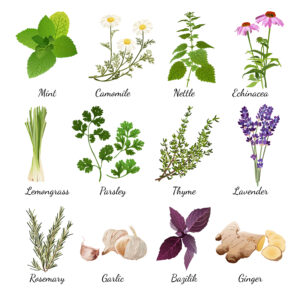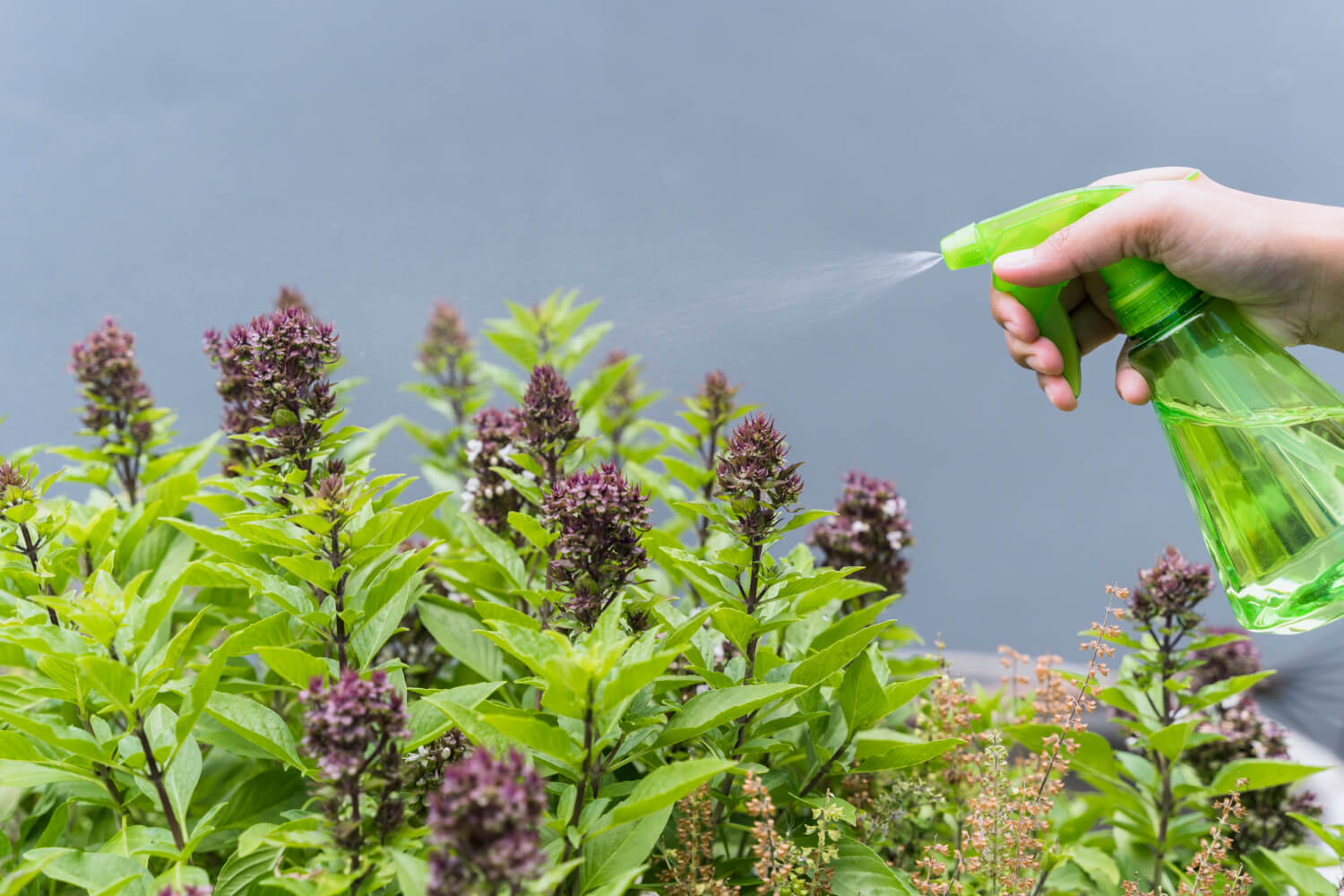11 Holistic Health Benefits of Medicinal Herb Garden
According to research in 2019, in an era when environmental pollutants and stress are common, people are becoming more and more interested in holistic methods for their overall well-being. Growing medicinal herb garden is one such strategy that is becoming more and more popular. Medicinal herbs garden provide 11 holistic health benefits in addition to their aromatic allure and culinary uses. We explore the world of medicinal herb garden in this in-depth look, revealing their 11 holistic health benefits.
The Healing Power of Medicinal Herbs:
Medicinal herb garden provide an array of 11 holistic health benefits, as a source of fresh and flavorful herbs for culinary purposes and as a natural pharmacy for various health conditions. Such gardens can improve one’s emotional, mental, and even spiritual health when well-cultivated. The following are some holistic health benefits of medicinal herb garden:
- Natural Remedies:
Medicinal herbs have been utilized for ages to address a variety of health issues. Growing a wide variety of herbs enables people to have access to natural treatments for common conditions including stress, headaches, and digestive problems. Herbs that are recognized for their relaxing properties include chamomile, lavender, and peppermint.
- Nutritional Support:
Many medicinal herbs are high in vital vitamins, minerals, and antioxidants. Adding these herbs to regular meals improves nutritional intake and flavor, promoting good health and energy. Herbs such as basil, oregano, and thyme not only add flavor to recipes but also supply important nutrients.
- Stress Reduction:
Taking part in a medical herb garden can be a relaxing and healing experience. Gardening has been related to lower stress levels, and the aromatherapy produced by diverse herb scents can further aid in relaxation and mental well-being.
- Physical Exercise:
The physical work is required for all aspects of herb garden maintenance, including planting, weeding, and harvesting. Participating in these activities regularly enhances flexibility, physical fitness, and overall health. It’s a mild kind of exercise that individuals of all ages can enjoy.
- Connection to Nature:
There is evidence that spending time in nature is good for mental health. A direct connection to nature is offered by medicinal herb gardens, which calm the mind and encourage mindfulness. This connection may improve mood by lessening the signs of worry and despair.
- Aromatherapy:
Aromatherapy is a way to use the fragrances that medicinal herbs release to achieve therapeutic results. Aromatic herbs, such as eucalyptus, rosemary, and lavender, have been linked to better sleep, lower stress levels, and happier moods.
- Sustainable Living:
Growing a medicinal herb garden encourages the adoption of sustainable lifestyles. It encourages people to choose natural medicines instead of pharmaceutical drugs, resulting in a more eco-friendly and self-sufficient lifestyle.
- Educational Opportunities:
Growing a medicinal herb garden allows you to learn about the qualities and uses of various herbs. This educational component not only empowers people to take charge of their health, but also creates a spirit of curiosity and lifelong learning.
- Immune System Support:
Many herbs can strengthen the immune system. For example, echinacea is well known for strengthening the immune system and assisting the body in fending off infections and diseases.
- Holistic Approach to Pain Management:
Herbs with well-known analgesic qualities include lavender and arnica. These herbs, whether used topically or in aromatherapy, can help with natural pain management methods.
- Spiritual Well-being:
Some people consider caring for a medicinal herb garden to be a spiritual activity. The appreciation for the medicinal benefits of herbs, as well as the connection to nature and the cycles of growth and harvest, can all contribute to a sense of purpose and spiritual fulfilment.
How do you make a medicinal garden?
The following actions must be taken to create your medicinal herb garden:
- Choosing the Right Herbs:
Choosing herbs that help you achieve your health goals is essential. Consider aloe vera for skin health, rosemary for brain function, and basil for anti-inflammatory properties.
- Optimal Growing Conditions:
A healthy garden requires an understanding of the unique requirements of each herb. The best growth for medicinal herbs is dependent on several factors, including soil type, sunlight, and frequency of watering.
- Companion Planting:
Some herbs grow best when planted with specific companions. For example, tomatoes and basil grow well together and enhance each other’s flavor and growth.
- Container vs. Ground Planting:
Medicinal herbs can be planted directly in the ground or grown in containers, depending on available space and convenience. For people with limited space, container gardening is perfect, but ground planting offers a wider variety of herbs.
- Sustainable Practices:
Adopt sustainable growing techniques to improve your herb garden’s overall health. Gardening can be made more eco-friendly and holistic by composting, utilizing natural fertilizers, and reducing chemical inputs.
Also Read| Unpacking the Truth: The Impact of Packaged foods on your health
Conclusion:
Growing a medical herb garden is an all-encompassing experience that promotes mental, emotional, and even spiritual health. Beyond just the herbs themselves, these advantages promote a closer relationship with nature, a sustainable approach to health, and a holistic way of life. As you begin on this botanical journey, the holistic health benefits of your medicinal herb garden will serve as evidence of nature’s transformative power.
Frequently Asked Questions:
Q. Can I Grow Medicinal Herbs Indoors?
A. Yes, many medicinal herbs can be grown effectively indoors. Make sure they get enough sunlight, use well-draining soil, and think about supplementing with artificial light if necessary.
Q. How Can I Preserve and Use Medicinal Herbs?
A. Herbs can be kept fresh by freezing, drying, or preparing herbal extracts. Research various techniques of preservation based on the plant type and planned usage. Teas made with dried herbs are great, and tinctures can be made using extracts and used in recipes.
Q. Are Medicinal Herb Gardens Suitable for Beginners?
A. Absolutely! A lot of medicinal herbs are resilient and simple to cultivate, which makes them ideal for novices. Begin with a few popular herbs, become familiar with their maintenance needs, and then progressively grow your garden.
Q. Do Medicinal Herb Gardens Attract Pests?
A. Although herb gardens may attract certain pests, infestations can be reduced by companion planting and natural pest management techniques. For instance, some pests can be avoided by planting basil next to tomatoes.
Q. Can Medicinal Herbs Interact with Medications?
A. It’s crucial to understand any possible interactions between herbs and drugs. Consult a healthcare expert, especially if you are using drugs, to verify that your medicinal herbs match your entire health plan.
Q. How Long Does It Take for Medicinal Herbs to Grow?
A. The length of time required for herbs to grow varies. Some perennial herbs, like sage, may take longer to harvest than others, like basil, which can be done in a few weeks. A flourishing herb garden requires persistence and patience.

Rupalee this blog may be issue other languages Tamil Marathi hindi etc
Yes I am going to translate it in marathi and hindi